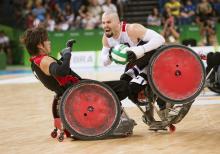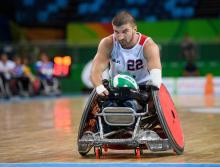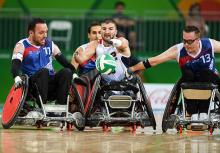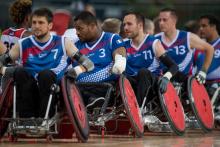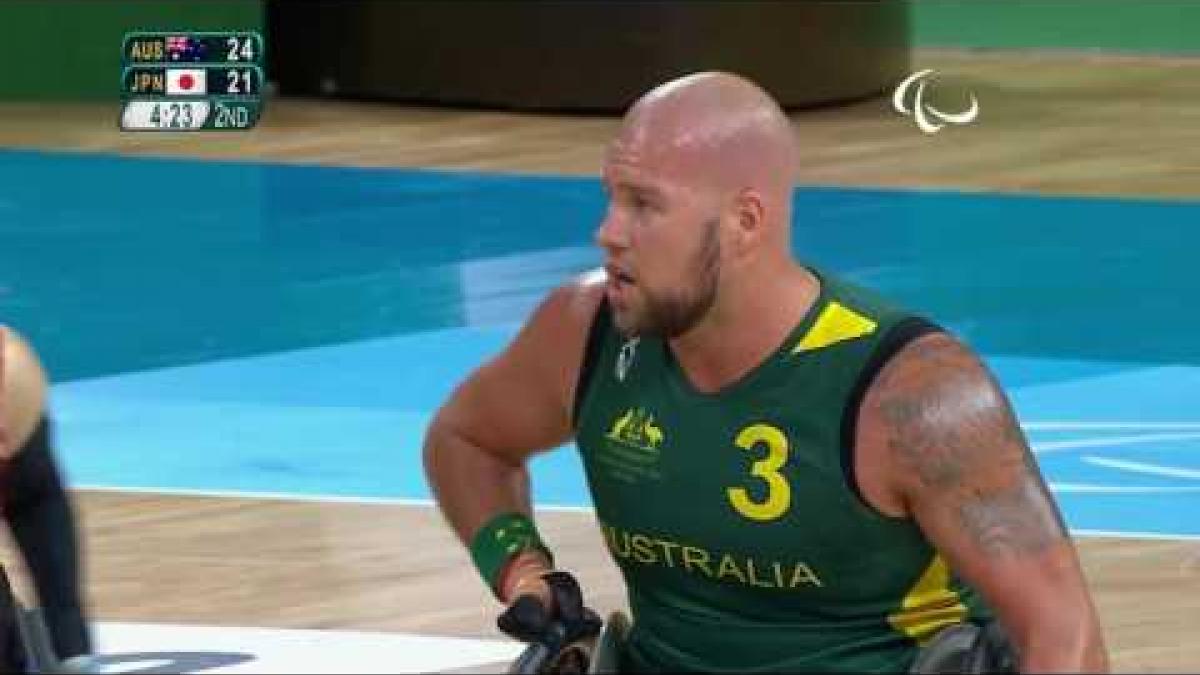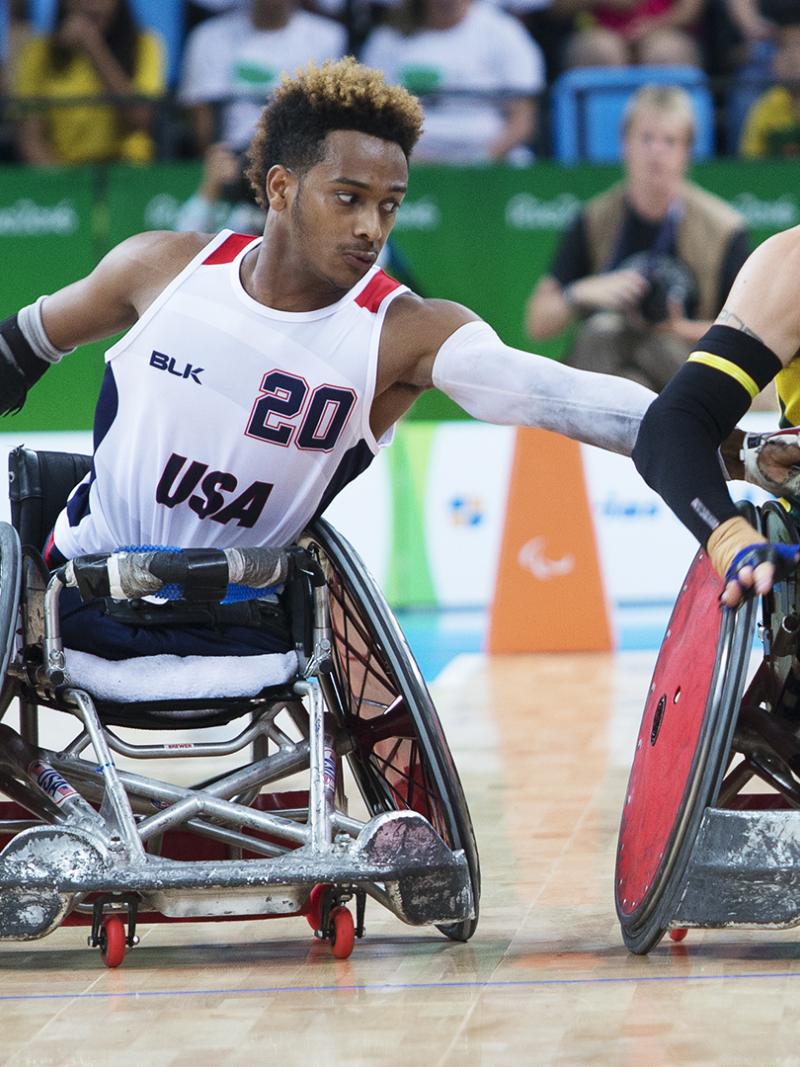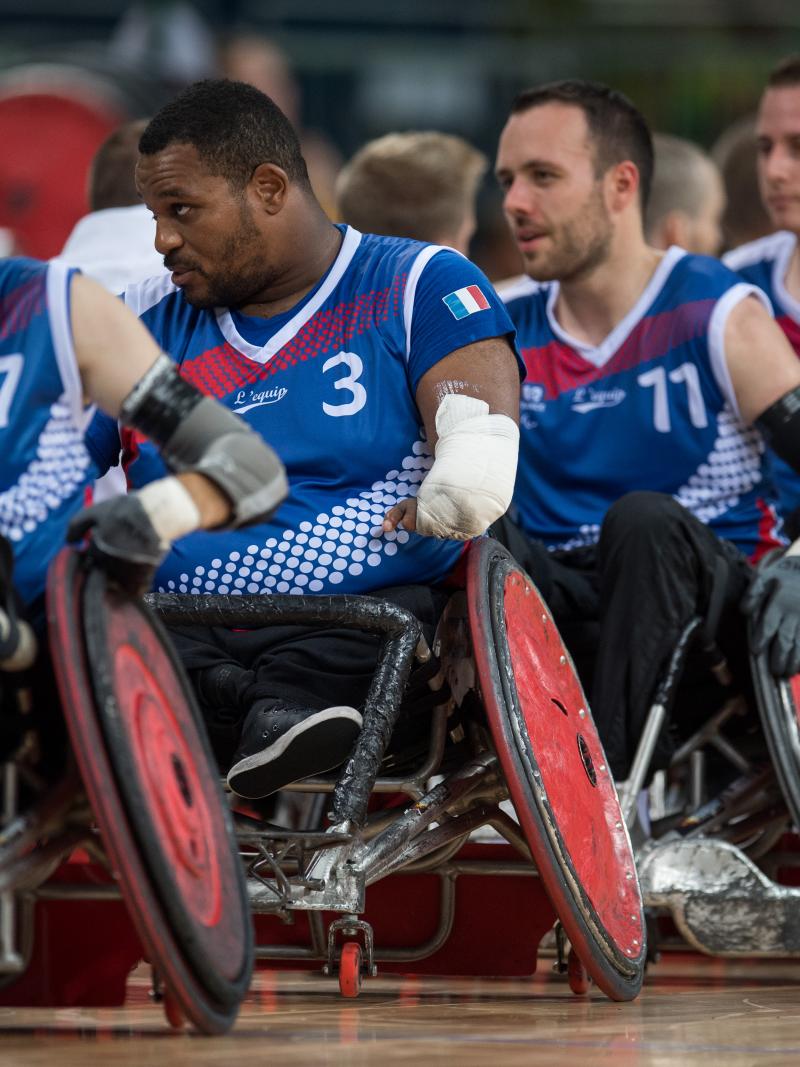Wheelchair rugby: Five things learned from 2016
Tokyo 2020 might see a shuffle in the final medal standings. Find out what else emerged from this year. 29 Dec 2016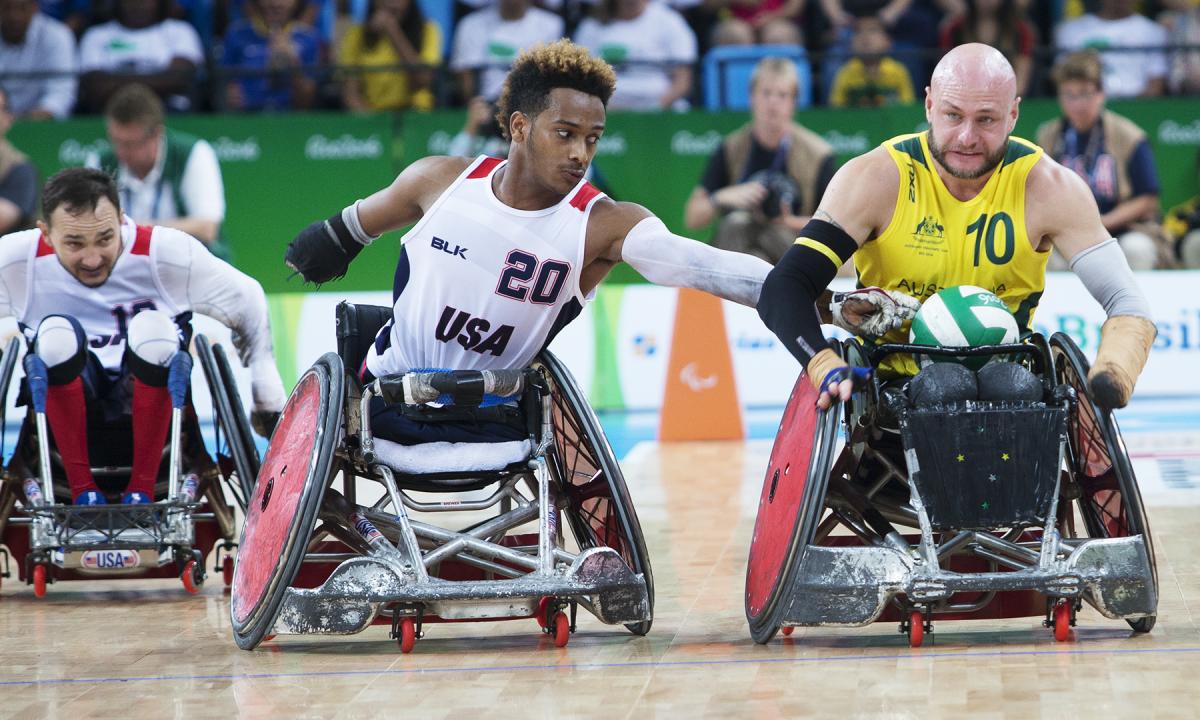
Australia's Chris Bond pushes down the court as USA's Josh Brewer reaches for the ball during an epic gold medal match to finish the Rio 2016 wheelchair rugby tournament.
While Paralympic champions Australia proved the world rankings do not mean much, the year also showed that the gap between the top teams is closing. Find out what else was learned from the sport in 2016:
1. Power gap closing fast
While Rio 2016 saw the same four teams make it to the medal matches as London 2012, the Games could have been a very different story if one or two results went the other way.
Great Britain’s rapid improvement since London 2012 saw it come within inches of qualifying for the semi-finals after losing to Canada in overtime. Sweden, France and Brazil also produced some excellent performances throughout the tournament.
Paralympic and world champions Australia, along with USA, Japan and Canada will be watching their backs for the next four years to ensure they are not upstaged by one of many emerging nations in the wheelchair rugby world at major tournaments.
2. Higher stakes for Paralympic Games qualification
In April 2016, the International Wheelchair Rugby Federation (IWRF) held its first-ever Paralympic qualification tournament in Paris, France.
Previous Paralympic and world championship results awarded spots based on zone championships and world rankings.
With the increased competitiveness of teams from around the globe, the IWRF adopted a qualification format that brought together six evenly-matched teams to battle it out for the last two spots at Rio 2016.
The USA were the clear winners, however, France, Denmark and New Zealand were all tied at the end of round-robin play.
France won through their semi-final against New Zealand to claim the final ticket to the biggest event on the sport’s calendar.
3. Growth in Southeast Asia
This year was a banner year for the sport in Southeast Asia.
After several years of grassroots development, two events brought the sport to the next level in this region.
From 9-13 June, the IWRF held a wheelchair rugby development clinic in Bali, Indonesia, targeting countries in Southeast Asia.
Based on the success of 2016, the IWRF expects to see continued growth in the region and looks forward to the participation of teams from this region for the first time in the IWRF Asia-Oceania Championship in 2017.
The region will also host the 2018 IWRF World Championships in Sydney, Australia, before all eyes turn to Tokyo 2020.
4. Look out for Japan at home Paralympics
One of the feel-good stories from Rio 2016 was seeing one of sport’s modern day heavyweights Japan breakthrough for its first ever Paralympic Games medal in wheelchair rugby.
The Japanese team held off the more-fancied Canadian outfit, 52-50, to claim the bronze medal ¬– the first of any Asian nation in the sport.
It is an ominous sign for the rest of the world as Japan look to use it as motivation to go even further when they host the next Paralympics at Tokyo 2020.
5. Australia has opportunity to gain more wheelchair rugby fans
Having set the benchmark in wheelchair rugby during the past four years with two Paralympic gold medals at London 2012 and Rio 2016 and the IWRF World Championship title in 2014, Australia will compete with the world’s best in its own backyard in 2018.
The announcement was made in July this year that Sydney Olympic Park will be home to the IWRF Wheelchair Rugby Championship from 4-10 August 2018.
IWRF president John Bishop is excited to bring the major event to Australia for the first time due to the nation’s long history in the sport, which has included participation in every World Championship and Paralympic Games competition.
Previous hosts are Nottwil, Switzerland (1995); Toronto, Canada (1998); Gothenburg, Sweden (2002); Christchurch, New Zealand (2006); Vancouver, Canada (2010) and Odense, Denmark (2014).
Sydney was the host of the 2000 Paralympic Games, the first time wheelchair rugby had full medal status at a Paralympic Games.

 Facebook
Facebook
 Instagram
Instagram
 Twitter
Twitter
 Youtube
Youtube
 TikTok
TikTok
 Newsletter Subscribe
Newsletter Subscribe

